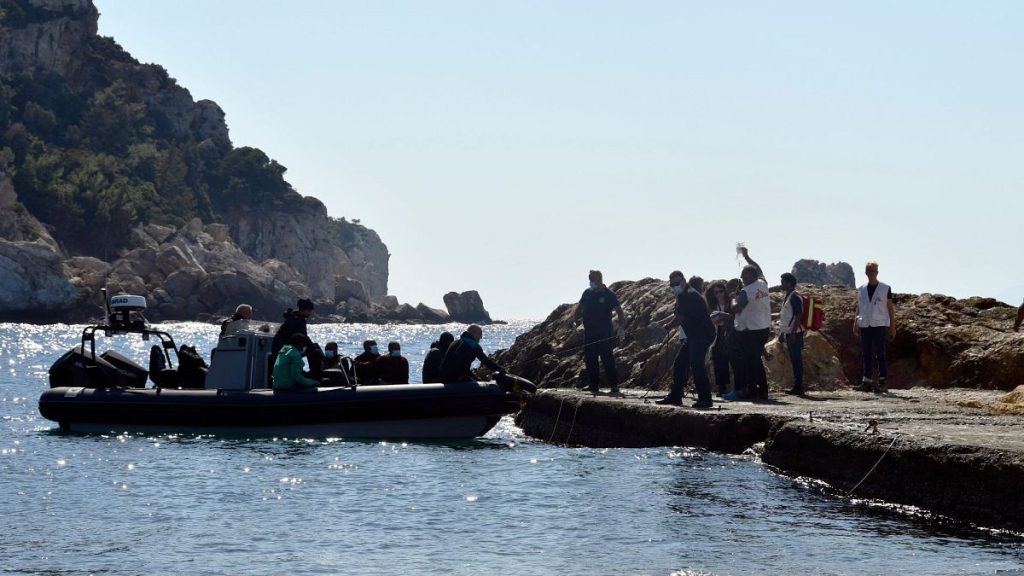The eastern Mediterranean is currently facing a significant surge in migrant arrivals, marking a concerning escalation of the ongoing refugee crisis. Greece, a frontline state in this humanitarian challenge, has reported a roughly 35% increase in arrivals since autumn 2023, with the journeys themselves becoming demonstrably longer and more perilous. This surge is not limited to the traditional short routes between Turkey and nearby Greek islands like Lesbos. A growing number of migrants are undertaking the considerably more dangerous 300-kilometer voyage from the Libyan coast to Crete and Gavdos, exposing themselves to greater risks at sea. This shift in routes underscores the desperation driving migration and the lengths to which people are willing to go to seek safety and a better life. Recent tragedies, such as the sinking of a migrant vessel near Gavdos, resulting in at least seven deaths and numerous missing persons, tragically highlight the human cost of these perilous voyages. The increased frequency of such incidents underscores the urgent need for enhanced search and rescue operations and greater international cooperation to address the root causes of this crisis.
The multifaceted nature of this surge stems from a confluence of factors, primarily rooted in geopolitical instability and the escalating climate crisis. Greek Migration Minister Nikos Panagiotopoulos has identified multiple ongoing wars in the broader region, including the recent conflict in Syria, as major drivers of displacement. These conflicts, coupled with the increasing impact of climate change, are forcing individuals and families to flee their homes in search of safety and survival. The collapse of the Assad regime in Syria has further complicated the situation, leading to a reevaluation of asylum claims from Syrian nationals. While Greece continues to accept new applications, the final decisions on these claims are temporarily on hold pending a thorough assessment of the evolving conditions within Syria. This pause reflects the complex challenge of determining legitimate asylum claims amidst a rapidly changing geopolitical landscape.
The increasing number of migrant arrivals is placing immense strain on Greece’s resources and its asylum system. Government projections estimate that illegal migrant arrivals could exceed 60,000 this year, a number that would significantly challenge the country’s capacity to provide adequate reception and processing. Syrians constitute the largest group of arrivals, followed by Afghans, Egyptians, Eritreans, and Palestinians, indicating the wide geographical scope of this humanitarian crisis. The diverse origins of these migrants highlight the need for a comprehensive and coordinated international response, addressing both the immediate needs of those seeking refuge and the underlying factors that compel them to leave their homes.
The temporary suspension of final asylum decisions for Syrian applicants represents a unique challenge for Greece. The fall of the Assad regime, while potentially signaling an end to the persecution that drove many Syrians to seek asylum, necessitates a careful reassessment of the situation on the ground. Determining whether returning to Syria is now a safe and viable option for refugees requires a thorough understanding of the post-conflict environment, including security conditions, access to basic necessities, and the potential for continued human rights abuses. This pause in decision-making underscores the ethical and logistical complexities of managing refugee flows in the context of evolving political situations.
The increased migrant arrivals are not merely a Greek problem; they represent a broader European and international challenge. The heightened pressure on Mediterranean migration routes is expected to persist through 2025, according to Minister Panagiotopoulos, highlighting the need for long-term strategies and sustainable solutions. Addressing this crisis effectively requires enhanced cooperation among European Union member states, including equitable burden-sharing, increased funding for reception and integration programs, and a commitment to addressing the root causes of displacement. Beyond European borders, international collaboration is essential to address the conflicts and climate-related challenges that drive migration, promoting stability and sustainable development in affected regions.
Ultimately, the surge in migrant arrivals to Greece serves as a stark reminder of the urgent need for a more humane and effective global response to the ongoing refugee crisis. This response must go beyond immediate humanitarian aid and address the complex political, economic, and environmental factors that force people to flee their homes. A truly effective solution requires a concerted international effort to promote peace, stability, and sustainable development, creating conditions that allow individuals to live in safety and dignity in their own countries. This necessitates addressing the root causes of displacement, fostering inclusive societies, and ensuring that the human rights of all individuals are respected and protected, regardless of their origin or circumstance.

